
Three bulk carriers with agricultural products and iron ore have left the ports of Chornomorsk and Pivdennyi, and five new vessels are heading to the ports for loading, said Deputy Prime Minister and Head of the Ministry of Reconstruction Oleksandr Kubrakov.
“Bulk carriers AZARA, YING HAO 01, ENEIDA (flags of Liberia and Palau) exported more than 127 thousand tons of Ukrainian agricultural products and iron ore,” he wrote on Facebook on Sunday.
According to the Deputy Prime Minister, 5 new vessels are being loaded at the ports of Greater Odesa: bulk carriers OLGA, IDA, DANNY BOY, FORZA DORIA, NEW LEGACY export almost 120 thousand tons of Ukrainian grain to Africa and Europe.
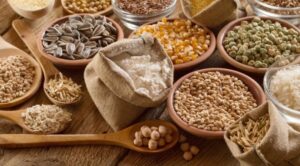
Agroprosperis agricultural group has supplied 17 thousand tons of agricultural products to Italy and Spain through the ports of Croatia since the beginning of 2023, the press service of the agricultural holding reported.
“In the first weeks of September of this year, Ukrainian and world media were abuzz with the news that Ukraine started exporting grain through the seaports of Croatia. “Agroprosperis is among the domestic exporters who were the first to use this route this year. It has become an important step in the expansion of Ukrainian agro-logistics against the background of the aggressor’s blockade of the grain corridor from the deep-water ports of the Black Sea,” the company’s website reported.
The agroholding noted that it was familiar with this export channel and had used it in previous years. During 2021-2022, the agroholding shipped 4,000 tons of GMO-free soybeans to Italy through Croatian ports for export. Since the beginning of the 2023-2024 marketing year, 6 thousand tons of corn were shipped to Italy and 11 thousand tons of wheat to Spain.
Currently, Agroprosperis is implementing a program of accumulation of wheat and soybeans for customers in Egypt and Europe.
According to the report, the structural subdivisions of the agroholding continue production of agricultural products and their export through alternative logistic routes. Agroprosperis noted the selfless work of its subdivisions in Sumy and Chernihiv regions, which grow, take care of crops and harvest crops under shelling.
In addition, the Agroprosperis Charitable Foundation is also active, providing direct assistance to 2,400 war victims totaling more than UAH 30 million.
Before the Russian military invasion, Agroprosperis had a land bank of 430 thousand hectares and total storage capacity of 800 thousand tons of crops. The holding grew and exported more than 2 million tons of grain and oilseeds per year.
“Agroprosperis operates through five divisions: Golden Sunrise (Agro), Bio Agro, Ray Agro, Latagro, New Agro Management, and provides financing to Ukrainian grain producers through Agroprosperis Bank.
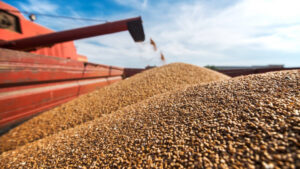
Rumanian Prime Minister Marchel Ciolaku will ask the country’s agriculture and economy ministers to approve a joint resolution to extend the ban on imports of Ukrainian agricultural products for 30 days, RFI quoted the head of the Rumanian government as saying.
Ciolacu said that he expects a proposal from Ukrainian Prime Minister Denis Schmigal on the licensing of grain exports, which will be discussed.
He added that after the European Commission’s decision not to extend the ban on Ukrainian agricultural products, “not a single kilogram of wheat has been imported to Romania from Ukraine.”
“If there are requests for exports to Romania, I will definitely ask the Minister of Agrarian Policy and the Minister of Economy to adopt a joint order that for 30 days, until everything is clarified, the restrictions will be extended. I repeat: there are no requests, and I want to assure the agrarians that it will not be like a year ago,” assured Ciolacu.
As reported, the European Commission announced on September 15 that it would not extend restrictions on imports of agricultural products from Ukraine with some conditions to avoid a new grain surge.
On May 2, the EC imposed a temporary restriction on imports of Ukrainian agricultural products, in particular wheat, rapeseed, sunflower and corn, to five EU member states – Poland, Bulgaria, Hungary, Romania and Slovakia. Those argued that Ukrainian grain was hitting their market and hurting farmers. On June 5, the restrictive measures were prolonged until September 15.
After the restrictions on imports of Ukrainian agricultural products were lifted, Poland, Hungary and Slovakia introduced unilateral bans. Poland expanded the list of products banned for import by adding flour and cereals. Hungary brought the list to 25 items.
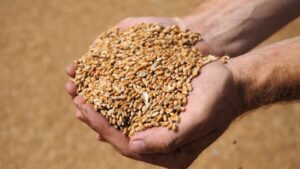
The Slovak government has decided to extend the ban on imports of wheat, corn, rapeseed and sunflower seeds from Ukraine until the end of the year, Prime Minister Ludovit Odor said.
“The European Commission did not extend the ban on imports of four commodities from Ukraine, including wheat, after September 15, so the government decided to ban their imports at the national level. And this is until the end of the year and for the same four products, i.e. wheat, corn, rapeseed and sunflower seeds. We must prevent excessive pressure on the Slovak market to remain fair to domestic farmers,” Odor said, according to Aktuality.
According to him, this step of the government is also a reaction to a similar approach of Poland and Hungary. Odor emphasized that the Slovak government will continue to work intensively with the European Commission and EU member states to find a pan-European and systemic solution while the national ban on imports of these four products is in effect. He stated the government’s readiness to lift the ban in this case.
The Ministry of Agriculture and Rural Development of Slovakia added that this decision is related to the protection of the domestic market and is a logical response to the practice of neighboring countries that adopt unilateral import bans.
“The ban does not apply to the transportation of goods through our territory, which expresses our solidarity with Ukraine and the placement of its goods in target markets,” the ministry added.
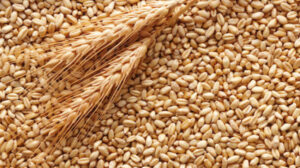
The trade flow of agricultural products through road and railway checkpoints in Volyn increased 19 times in 2022, and the number of food products (1-24 groups of UKTZED) cleared by customs posts in the “export” mode increased 10 times, the press service of the Volyn Customs reported.
“Volyn Customs coped with a significant increase in workload due to promptly taken measures to optimize the time of customs procedures, redistribution of personnel, joint projects with border guards and the Polish side of the pilot projects of vehicle passage,” the report quotes the head of Volyn Customs Yuriy Ivaskiv as saying at a field meeting of the Verkhovna Rada Committee on Agrarian and Land Policy.
Commenting on the work of Polish veterinary services on the Ukrainian-Polish border, Ivaskiv said that the Ukrainian side had repeatedly raised this issue at international meetings. However, the Polish side has stated that it is impossible to speed up these types of state control due to contradictions with the legislation of the European Union.
“Certain types of control (in particular, veterinary control – IF-U) can only be carried out at the border,” Ivaskiv reminded.
He noted that in August of this year, on average, 625 trucks were accepted at the Dorohusk checkpoint from Yahodyn per day, of which only 43 were carrying food products. Given the fact that all grain goods, including technical grain, are sent by the customs authorities for veterinary control, and product samples are examined within 2-3 days, trucks with this category of goods are waiting to cross Yahodyn in a separate electronic queue, he explained.
Ivaskiv reminded Volyn agricultural producers of the new requirements of the Customs Code, which will come into force on November 7, 2023. He recommended that everyone should not hesitate to apply for customs simplification in the NCTS or the status of an authorized economic operator (AEO).
“This will allow agricultural businesses to export products to the European market without having to present the goods to customs,” summarized the head of the Volyn Customs.
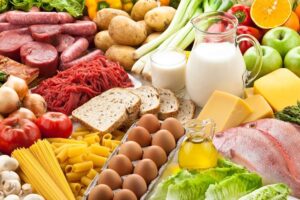
Trade statistics in the first half of 2023 compared to the same period last year showed an increase in trade in goods between Norway and Ukraine by 26%, the Norwegian-Ukrainian Chamber of Commerce (NUCC) reported.
“An important and notable trend is the significant 31% increase in Norwegian imports from Ukraine. This increase was primarily driven by growing demand for food and agricultural products used in feed production,” the NUTP said.
According to the report, in other sectors such as manufacturing, engineering, furniture and clothing, the level of trade remained stable.
A similar revival in Norwegian-Ukrainian trade relations was seen in the supply of goods from Norway to Ukraine, which grew by 25% in the first half of the year compared to last year’s figures.
Growth in seafood trade, according to the NUTP, was “particularly impressive” – up 18% compared to previous years of cooperation. Export revenue for this product category rose by 25% in monetary terms, driven by higher prices.
In addition, Norway increased its exports of electric cars in the reporting period – more than 800 units were delivered to Ukraine in June alone. “These exports account for about one-third of all imports of electric cars to Ukraine, which made Ukraine the most important export market for used Norwegian electric cars,” NUTP summarized.